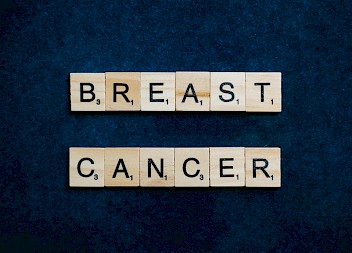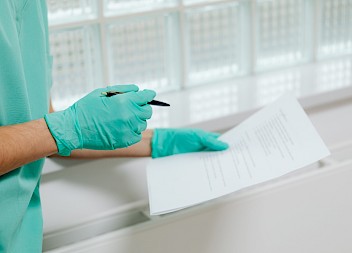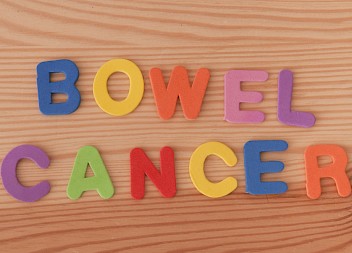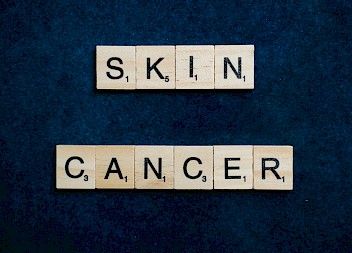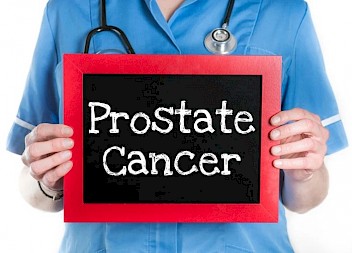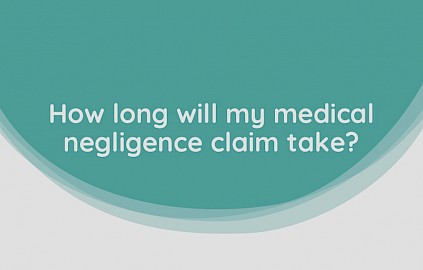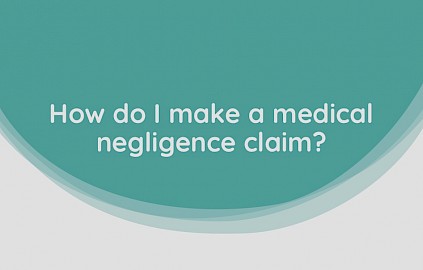While cancer diagnoses are rising, cancer misdiagnosis remains a problem. This can drastically reduce patients’ treatment options, quality of life, and chance of survival.
Our team of cancer negligence solicitors have won compensation for many patients and families in the past and are here to support you with your own cancer misdiagnosis claim.
What Are Cancer Misdiagnosis Claims?
Cancer misdiagnosis and medical negligence cancer claims are legal actions taken against medical professionals who have breached their duty of care to a patient, resulting in physical or mental harm that could have been avoided. Claims are usually made by the patient but can be made on behalf of a patient who has passed away, is under the age of 18, or does not have mental capacity.
Refer to our complete guide to cancer misdiagnosis claims for more information.
When Can You Make a Cancer Misdiagnosis Claim?
You can make a cancer misdiagnosis or negligence claim in various circumstances. You may wish to contact Medical Solicitors if you or a loved one has experienced one of the following:
- GP or consultant did not to take symptoms seriously, leading to an incorrect or delayed diagnosis.
- Inadequate referrals or delays in appointments for investigations and treatment.
- Misinterpretation of test results or incorrect medical records.
- Mismanagement of cancer diagnoses or treatments, including being wrongly informed about your condition or treatment risks.
Cancer negligence can happen at any stage in your cancer care, from your initial appointments and investigations through to your surgery and subsequent treatments. Delaying your diagnosis or providing the wrong diagnosis may allow your cancer to spread, leading to more extensive surgery or receiving treatment for a disease you do not actually have. Being falsely diagnosed with cancer may still entitle you to cancer negligence compensation if you experienced psychological trauma as a result of the misdiagnosis.
In order to make a successful cancer misdiagnosis claim, you must be able to prove that any of the above circumstances happened during the course of your cancer care, how these circumstances have impacted your life post-treatment and how they could have been avoided.
What Types of Cancer Misdiagnosis Claims Do We Help with?
Our specialist solicitors have years of experience handling many different types of cancer misdiagnosis claims and are familiar with the mistakes made by medical professionals when they provide the wrong diagnoses. We have included some of the most common cancer claims we help with below:
- Bowel Cancer – Many patients who are later diagnosed with bowel cancer are initially misdiagnosed as having irritable bowel syndrome or an autoimmune disorder such as coeliac disease.
- Breast Cancer – Claimants for breast cancer misdiagnosis have been told that suspicious lumps are benign cysts or blocked milk ducts.
- Cancer of the Cervix – As its earliest symptoms are limited to vaginal discharge and pains in the stomach or pelvis, cervical cancer can often be misdiagnosed as vaginal amebiasis (vaginal infection) or even irritable bowel syndrome.
- Lung Cancer – Occasionally, lung cancer is overlooked and misdiagnosed as a more routine respiratory illness, such as asthma.
- Prostate Cancer – As an enlarged prostate can lead to infrequent or painful urination, it is sometimes misdiagnosed as a urinary tract infection.
- Vulval Cancer – Many of the symptoms of vulval cancer overlap with less serious conditions, such as lichen sclerosis, yeast infections, urinary tract infections and even skin conditions such as eczema.
- Skin Cancer – When moles and inflammation are not properly investigated, serious skin cancers such as melanoma can be misdiagnosed as eczema or psoriasis.
What Happens When You Make a Cancer Misdiagnosis Claim?
If you decide that you want to pursue a cancer misdiagnosis claim, the first thing you need to do is get in touch with one of our cancer negligence solicitors for a free initial consultation. In this consultation, a member of our team will familiarise themselves with your case.
After your consultation, our specialist solicitors will start collecting evidence to support your cancer misdiagnosis or medical negligence claim. We undertake an initial screening stage of obtaining the medical records and discussing the issues with medico-legal experts on an informal basis (pro bono).
Should your case pass the screening stage with the experts, then we offer a no-win no-fee agreement, and after that, we can obtain formal expert reports.
Once our team has assembled the strongest legal argument to support your claim, we will contact your GP practice or hospital to begin notifying them of the claim.
Case Studies from Successful Cancer Misdiagnosis Claims
Our specialist solicitors have handled many different types of cancer misdiagnosis and medical negligence claims. We have recovered large sums in compensation for many clients. Wherever we can, we try to prevent similar mistakes from happening to other cancer patients in the future.
Our Director, Caroline Moore, was successful in recovering £1.5 million for the misdiagnosis of granulosa cancer ovary that had spread to the lung of a former clinical psychologist.
Discover other examples of past successful cases.
Do You Have a Cancer Misdiagnosis Claim?
At Medical Solicitors, we conduct most of our clinical and medical negligence claims under Conditional Fee Agreements to ensure that our clients do not have to worry about whether they can afford their cancer negligence claims. You have nothing to lose in speaking to us.
If you or a loved one has experienced medical negligence during your cancer care, or a false diagnosis has delayed your treatment and led to further health complications, please contact our friendly team of specialist lawyers for a free consultation about your cancer misdiagnosis claim.
FAQs for Cancer Misdiagnosis Claims
What are the time limits for cancer misdiagnosis claims?
Whether you are claiming for yourself or someone else, you need to make your cancer misdiagnosis claim within three years of the patient being harmed. Failure to claim within this time limit could lead to your claim being “time-barred” by a court.
However, if there were circumstances preventing you from making your claim, you may be able to submit a Section 33 of the Limitation Act 1980 application to extend this deadline.
It is important to note that the three-year time limit does not apply to cancer negligence claims made for children until they turn 18.
What is the average payout for a cancer misdiagnosis claim?
The amount of compensation you will be awarded will depend on the severity of your injury and how it has impacted your life. When our solicitors are assessing your cancer misdiagnosis claim, we will value your compensation based on the following criteria:
- General damages – The value of the physical and psychological harm you have suffered as a result of your misdiagnosis.
- Special damages – The past and future financial losses you have/will incur as a result of your misdiagnosis, such as loss of earnings while undergoing treatment or losing your ability to work.
Your cancer negligence compensation should also cover any expenses you have incurred as a result of your misdiagnosis. This can include the cost of private healthcare appointments and transport to the hospital, private carers and any changes made to your home or car, loss of earnings for a family member who has left their job to care for you, as well as the cost of therapy or counselling services.
Where can you get support for cancer?
Whatever stage you are at in your cancer care, there are numerous support groups and cancer charities that will be happy to help you, such as:
- Breast Cancer Now is the largest breast cancer charity in the UK. It offers free courses, expert talks and monthly meet-ups with other people who are living with breast cancer.
- LUNGevity is a service of CancerCare® that provides free professional support to anyone coping with lung cancer. This includes counselling, support groups, financial assistance and educational workshops.
- Pancreatic Cancer UK has a support line and a forum for patients to share advice and useful information with one another.
- MacMillan provides support for patients with all types of cancer, answering common questions and helping them find local support groups.


